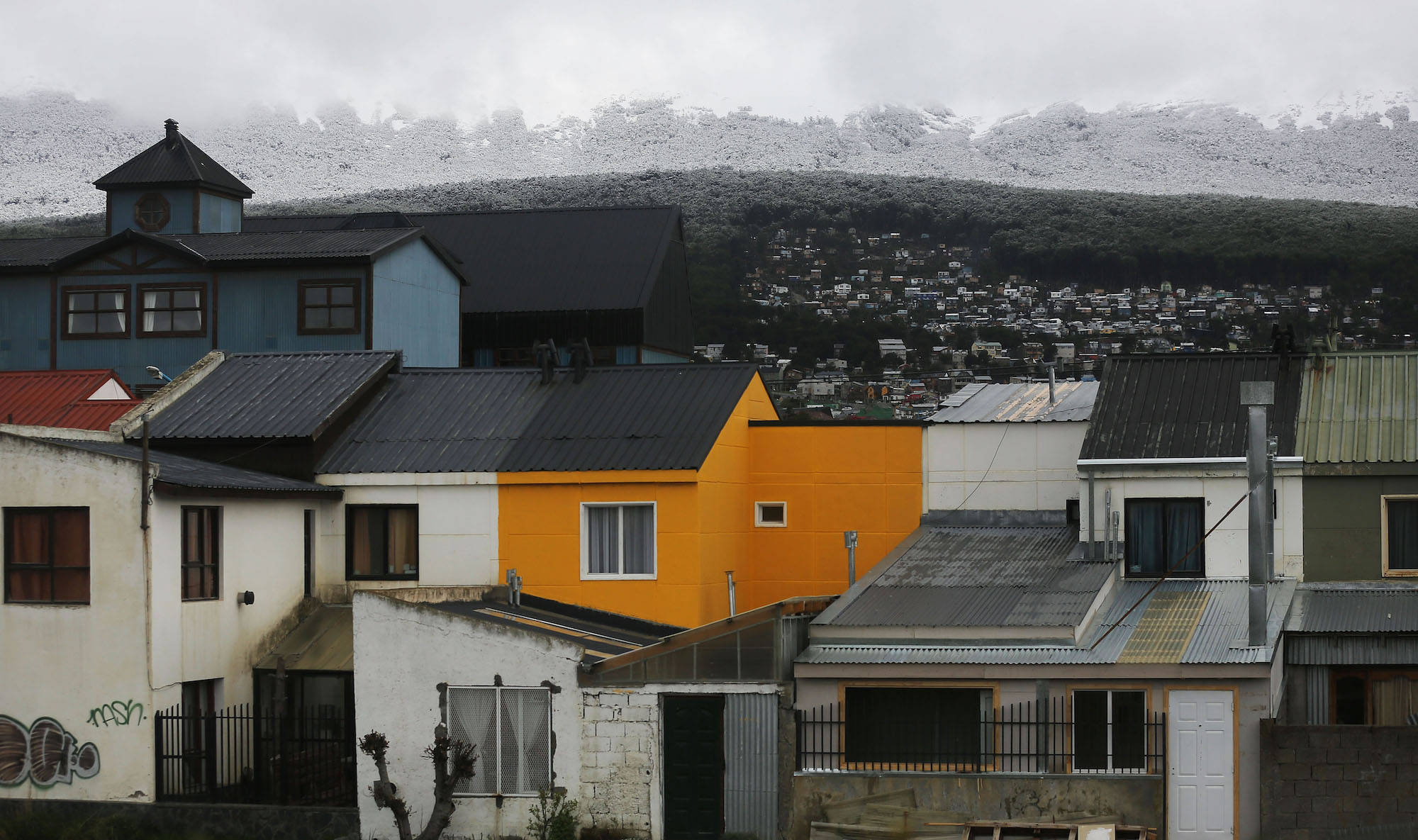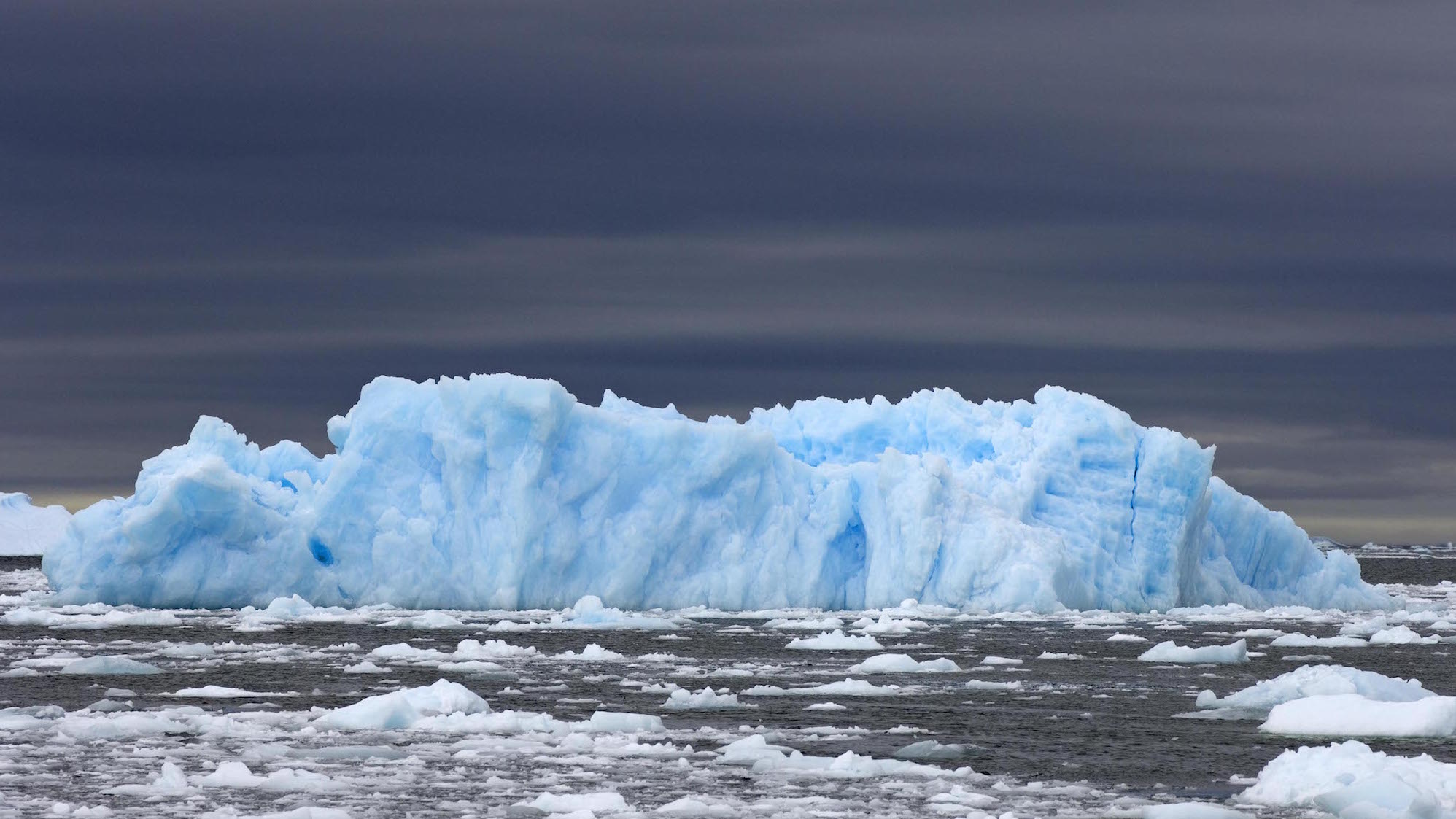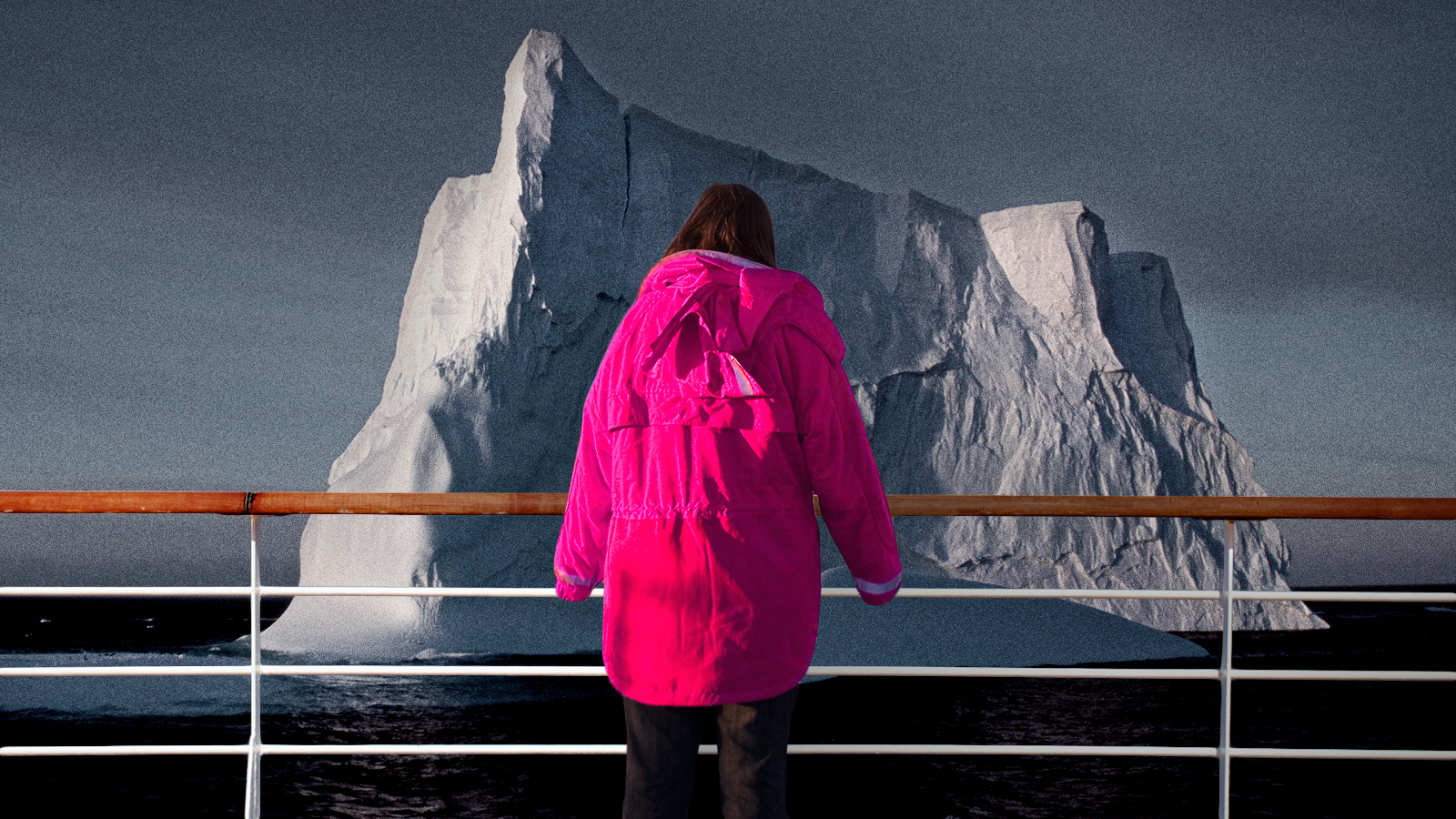At the end of October, in the thick of the #MeToo movement, I received a message written by five women. They were reaching out, as so many others were, to share their story.
A couple of weeks earlier, I had written about the prevalence of sexual harassment on scientific research trips to Antarctica. Jane Willenbring, a geologist who was physically and verbally abused by her advisor, finally reported him to Boston University after nearly 20 years of silence. That story, originally covered in Science, shed some light on sexual misconduct in the sciences.
As a counterexample, a sign that meaningful change was on the way, I pointed to Homeward Bound — an Australia-based leadership initiative for female scientists that aims to compile a network of 1,000 women leaders by 2026. Homeward Bound hopes that network will go on to influence future policies and, among other things, fight climate change.
For about a year, approximately 80 women from around the world get to know each other over online chats, coaching sessions, and working groups. Then, they all meet for a three-week-long voyage to Antarctica. Shift the leadership from male to female, goes Homeward Bound’s operational theory, and it will remove the barriers that women in science face — including unwanted advances, bullying at work, and a “boys’ club” atmosphere.
In a 2014 study, 71 percent of female scientists reported sexual harassment during field work; 26 percent revealed they’d been sexually assaulted. The American Geophysical Union recently classified “harassment, bullying, and discrimination” as scientific misconduct in its code of ethics. And earlier this month, the National Science Foundation reformed its policy, requiring grantee institutions to report when research leaders are accused of inappropriate behavior.
The women who wrote to me, all alumnae of Homeward Bound’s inaugural Antarctic voyage, alleged that, rather than working to remove barriers that stymie women scientists, the trip was plagued by them. They noted several instances of sexual harassment and bullying, and one participant alleged a disturbing episode of what she labeled “sexual coercion” at the hands of one of the ship’s crew. Much of that environment of hostility was perpetuated, they say, by Homeward Bound’s leadership and faculty.
Still, most of the women I spoke to have participated in efforts to reform the program to make it safer and better for the next voyage — which set sail 10 days ago. They offered feedback through a formal review process that 2016 alumna Deborah O’Connell, an Australian research scientist,* helped lead. O’Connell, who was not part of the group that reached out to me, compared Homeward Bound’s need to iterate to her expertise: trying to devise interventions for climate change. She says that, when trying out new and bold experiments, scientists have to put in place “rapid-learning loops” to ensure they’re moving in the right direction.
“There were many things that needed to be improved about the program content and the way it was run,” O’Connell says, adding that participants and Homeward Bound leaders agreed on many elements that could be refined.
But the women who contacted me are not sure that, a little over a year on, Homeward Bound has changed enough to meaningfully contend with the systemic issues it’s trying to address. Furthermore, they feel they have been silenced for repeating their concerns. Their belief is that Homeward Bound is not yet a safe space for women, even as it works toward making science more inclusive of them.
A program with such noble aspirations has to navigate extremely fraught waters. When those are literal Antarctic waters, it’s even more challenging. As you read this, the second voyage of Homeward Bound could be moving closer to the example for conquering sexism in science that I initially held it out to be. Or it’s sailing toward being a cautionary tale of the complexities involved in toppling long-standing inequity.

“The idea for Homeward Bound came to me literally in a dream,” cofounder Fabian Dattner tells me over the phone in early February. She had envisioned a crowd of women on a ship, Antarctica in the background, and a film crew documenting the whole process.
A self-described social entrepreneur, Dattner is the cofounder of Dattner Grant, a leadership consultancy near Melbourne. She developed Homeward Bound with a marine ecologist in 2015. The modus operandi of the program is to equip women to become leaders via an intensive process of self-examination.
For the first 12 months of Homeward Bound, participants have sessions with coaches to discuss where they are as leaders and where they want to be. They then work in research groups of about six, delving into topics like climate change communications, climate and gender, and climate and health. At the program’s culmination, the women meet in the Argentine town of Ushuaia to board a ship to Antarctica. In 2018, the cost of participating in the program is $16,000.

Ushuaia, Argentina. Mario Tama/Getty Images
In December 2016, the first Homeward Bound voyage set out with 76 women from eight countries. Also on board were about a dozen faculty members; around 40, primarily male, crew members (mostly from Argentina and Chile); as well as Australian and German expedition leaders.
December is often the warmest time of year to be in Antarctica, though warm for the bottom of the Earth is still freezing cold. The Homeward Bound journey in 2016 took two days to cross the Drake Passage — the body of water between South America and Antarctica — and participants spent time on the deck marveling at the icebergs and relatively calm sea.
Once reaching the southernmost continent, sunsets would “linger for hours,” alumna Sea Rotmann, a New Zealand-based energy and behavior change consultant, tells me. But the sky would never quite get dark — an ambience that people who have spent time at the planet’s poles characterize as emotionally and physically overwhelming.
It’s in part why Antarctic researchers typically undergo psychological evaluations before going into the field. “If psychologists want to study the combined effects of increased interpersonal stress and reduced opportunity for buffering and coping with that stress, here indeed is a natural laboratory,” notes a 1998 analysis of the psychological hazards at a polar research base.
During a typical day on the Homeward Bound trip — in-between field jaunts out onto the Antarctic ice — there were plenty of leadership strategy discussions and what could be described as guided introspection, which included personality tests and frank analyses of participants’ strengths and weaknesses. In the evenings, there was a lot of drinking on the vessel. The ship’s bar was the primary area to socialize and decompress after hours of intense self-reflection and ice-clambering.
“The outcome is emotional-cognitive — you’re able to change in your entirety, and the program was designed around that,” Dattner explains. “None of this will work if you’re not looking into the dark part of your soul.”

Homeward Bound has been forced to look into the dark part of its own soul over the past year.
On the night the ship docked back into Argentina, the program asked participants to critique the journey, noting what was worthwhile and what had failed. Grist has reviewed the compiled feedback.
The main criticisms were that there was little discussion of participants’ research, climate science, or gender inequity in science. Respondents saw the trip as a missed opportunity to converse about the challenges each saw for others in their industry. Furthermore, about a quarter of the women found the facilitators’ instructional style to be “confrontational.” Four whom I spoke with specifically noted a bullying dynamic in the leadership sessions.
In response, Dattner had to reevaluate her philosophy on creating leaders and, as a result, much of the program. She says that it was, at times, a painful process. But all of those reflections formed the basis for, among other things, a revised curriculum that focuses more on the systemic factors that keep so many women from attaining positions of leadership in science.
Eighteen alumnae sent a separate letter to Dattner and the faculty in April 2017. It requested that greater attention be paid to the safety and health of the women in the program.
“We should take every step possible to ensure the physical and mental health of participants and staff during the voyage and prior to embarkation,” they wrote, adding that they felt safety concerns could not be adequately addressed by Homeward Bound’s feedback process. They asked that the faculty and expedition leaders acknowledge the need to protect the participants traveling to Antarctica.

Massimo Rumi / Barcroft Media / Barcroft Media via Getty Images
Several women on that voyage described to Grist an inappropriate dynamic with some crew members, who they allege placed bets on who they could sleep with, discussed whether women scientists would be “fuckable,” and according to one 2016 alumna, tried to get women into “compromising circumstances.” Multiple women noted their discomfort at having their names and corresponding room numbers visibly posted at the bar.
In their letter, the 18 women also wrote that leadership team members “womanhandled” the participants and pushed, pulled, or embraced them against their will. “Unsolicited physical contact by anyone — especially people in positions of authority — is unacceptable,” they wrote. They described instances of public humiliation at the hands of the leadership team — including publicly referencing one participant’s confidential sexual trauma and repeatedly calling out another who was critical of the program as a troublemaker. They even say they witnessed unacceptable objectification of crew members by Homeward Bound faculty.
A June 2017 response from Dattner and Homeward Bound thanks the 18 women for their feedback and lists the 63 changes that the program implemented based on its own review process. It does not acknowledge or respond to the allegations of harassment or humiliation.
“A safe space is needed when one is challenging oneself and exploring one’s inner self, especially when taking women in the middle of the Southern Ocean to do that,” one member of the group of 18 wrote to me via email. “I don’t think a leadership program like Homeward Bound can be successful unless it properly recognizes and really listens to the diverse views and negative experiences of the participants, and importantly, takes care of their safety and well-being.”

Even if Homeward Bound starts listening, a 2016 alumna I’ll call Ashley (to protect her privacy) won’t be participating in its network of women leaders. The conditions on the Antarctic journey were particularly hard on her.
Ashley is an Australian environmental scientist who found out about Homeward Bound through a colleague at the government organization she worked for in 2015. She craved an opportunity to meet other scientists and meaningfully discuss all the challenges they faced as women.
During the application process, she had endured sexual harassment at work. One of her older coworkers began sending her lewd texts detailing sexual acts he fantasized about her doing. She, along with two other women, reported his behavior. He vehemently denied any wrongdoing. After a drawn-out battle with her employer, she resigned.
Ashley, who is also a survivor of childhood sexual abuse, collapsed into a mental breakdown and was eventually diagnosed with PTSD. After being accepted into Homeward Bound, she emailed Dattner about her condition and her recent harassment experience, writing that there are “still small struggles I deal with on a day-to-day basis.”
Dattner was warm in her response. “I suspect this ship will be one of the safest, most thoughtful, responsible, kind, and supportive places any of us could be,” she replied. “I will personally be there for you when, how, and if you need me.” She reassured Ashley that multiple coaches would also be available on the ship to help her through any difficulties.
Ashley ended up facing a lot of them. She was anxious, depressed, and, contrary to Dattner’s assurances, found the program’s faculty unsupportive. At the Symposium at Sea — an event where all the women gave presentations on their scientific work — Ashley asked if she could focus her talk on the sexual harassment she had faced. She hoped to give other women the opportunity to discuss their own experiences.
“I said, ‘I don’t want to talk about my work,’” she recalls. “I want to talk about why I’m not going back to work, and I think that’s pretty important.”
A Homeward Bound spokesperson tells Grist they turned down Ashley’s request because there were participants on board who specifically demanded not to have a discussion about sexual misconduct at work because they feared having to relive their own experiences. It’s an apt encapsulation of a major rift in the #MeToo movement: While many women, like Ashley, find sharing their stories empowering, others want to avoid the subject altogether to protect their mental health.

DeAgostini/Getty Images
As she was feeling silenced by Homeward Bound’s leadership, Ashley was dealing with new, unwanted advances. A male crewmember had made his interest in her known, and at a raucous party on the ship, he offered her several drinks. She accepted them, even though she says she doesn’t normally indulge due to her own issues with alcohol. But she was feeling deeply anxious and depressed while on board the ship, and she recalls wanting to feel more comfortable.
As Ashley spent more and more time with the crewmember, she became confident that they could spend time together as friends. After all, she was engaged to be married and had no interest in romance.
One night, while she was drinking with the crewmember and another Homeward Bound participant, the crewmember asked one of his colleagues to call Ashley’s friend away to another part of the ship. As soon as the two were alone, he climbed on top of Ashley and started kissing her face and chest. She tried to block him.
For several nights, he called her room, asking to be let in. She did not report any of this behavior, she says. She mistrusted the faculty after the Symposium at Sea debacle, and she didn’t know which authority on the ship was best to report it to. And, perhaps above all, she felt too depressed to bother.
On the last night of the journey, after a lot of drinking and partying, Ashley woke up naked with the crewmember, having no memory of what had happened. Facebook messages from him after the fact confirm that they had sex, which she is sure she was in no condition to consent to.
She confessed all of this to Sea Rotmann on the plane back to Australia. But she never reported it to Fabian Dattner or anyone else. She simply wanted to be done with the program.

Every woman I spoke with from the 2016 Homeward Bound trip told me there were several instances of consensual sex on board.
“What happened in Antarctica stays in Antarctica,” Dattner told me. “Guess what, sex turns up. I don’t care what you do as long as you don’t hurt anyone.”
But someone was hurt. Experiences like Ashley’s are — as we’re learning through the media — extremely commonplace. The stories can be blurry and messy, which are frequently subject to question. That’s what makes them hard to report — particularly if you don’t trust the authority you would report to, which Ashley did not.
She has, however, directly confronted the crewmember about her experience, so he could learn from it. “I’ve explained to him that I would not have slept with him if I had not been so traumatized and triggered,” she tells me. “And that I was drunk, and that it wasn’t consensual, and that it wasn’t OK for him to keep going after me when I had told him no.”
Wynet Smith, a geographer based in Canada and one of the 18 women who signed the letter to Homeward Bound, says that none of the women on the ship were given any protocol by which to report incidents of misconduct — though she’s since discovered that was the domain of the ship’s captain. She, along with Sea Rotmann, has been in touch with the company that owns the ship to request that women on board the 2018 voyage are aware of that fact. (A Homeward Bound spokeswoman contradicts Smith’s account, saying the women on the 2016 trip received a safety briefing informing them to direct complaints to the ship captain.)
Dattner insists that any sexual misconduct claim on the 2016 journey, against the crew or otherwise, is completely unsubstantiated. Dattner and a Homeward Bound spokeswoman note there is no record of any transgression — which Ashley concedes. While there was no official complaint from the 2016 trip, the feedback compiled through the program’s review process does include references to both sexual harassment and Ashley’s experience.
According to Dattner, she has more than met the safety requirements based on feedback from the ship’s owners, the ship doctor, the faculty, and the alumnae network. In the additional letter, the 18 cosigners demanded that room numbers not be posted publicly — a request acknowledged in Dattner’s June 2017 response. And a new Homeward Bound code of conduct includes a section on how to report incidents of sexual misconduct.

Steven Kazlowski / Barcroft Media / Getty Images
The 18 women also recommended in their letter that Homeward Bound contract an independent clinical psychologist — who would be available to the women ahead of the trip and on board the ship — to help participants navigate the emotionally strenuous process of self-examination in a challenging environment. The program has hired Kerryn Velleman, an organizational psychologist who had worked as a coach with the 2016 cohort, to join this year’s voyage. (The alumnae I spoke with say that she does not meet their requirements because of her lack of clinical practice and her connection to Dattner.)
In an email to Grist, Velleman explains that Homeward Bound’s application process invites candidates to disclose their mental health history and allows the program’s leaders to assess the emotional preparedness of participants to take part in the program. Indeed, the program now requires that participants have their psychological fitness evaluated before embarking on the Antarctica trip.
“This is not a setting for the clinical resolution of human issues,” Dattner told me. “This is a leadership initiative. It’s really important that the women put themselves forward and self-assess: ‘I’m going to a remote location, I’m on an expedition and a leadership initiative: Do I feel resourceful about being in that position?’”

Ultimately, the fundamental disagreement between Homeward Bound’s leadership team and the women who continue to criticize the program comes down to this: What measures must be taken to create a “safe” space in which women will thrive, succeed, and transform themselves?
Sea Rotmann is perhaps the Homeward Bound participant most openly critical of the program. She believes that the leadership team has not approached the issue of safety with the appropriate gravity, and she’s alarmed that she, along with three other critics, were kicked out of the program’s Facebook group in December for continuing to express disillusionment. (A Homeward Bound spokesperson confirmed that two women were ejected from the Facebook group for behavior that undermined “the sense of safety in our online spaces” and distressed other group members.)
“In this so-called sisterhood of women science leaders, a program set up by women and for women, it seems you’re only welcome to speak out if it is in support of what some of them want to get out of it,” Rotmann wrote to me. “And to me, at least, that seems more perverse and insidious than some of the outright sexism and harassment that is happening to us all over the world.”
Over the course of multiple conversations, Rotmann tells me that despite her significant misgivings, she’s confident that the 2018 Homeward Bound voyage will be an improved experience. And she attributes that to the work that she and the other alumnae did to ensure they were heard by the leadership team.
One early report from the ship seems to indicate things have changed. Shortly after the 2018 voyage’s departure, Ashley received a Facebook message from the crewmember who pursued her. He told her that the crew had been warned against “fraternizing” with the women, and that this year’s voyage would be “boring” because of it. When Ashley reminded him that her experience was what pushed her to call for that warning, he was horrified and became defensive — despite the fact that she had already explained that to him.
Homeward Bound will continue to change and grow. In doing so, it has an opportunity to meaningfully address the ways in which sexual misconduct can infiltrate even the best-intended environments.
The goal of elevating more women into scientific leadership is certainly admirable, but it may not be enough to meaningfully address the problems that face women in the field. And Dattner emphasizes, in our conversation, that she does not presume to say Homeward Bound is single-handedly taking on sexual discrimination in science. She instead describes the program as “a small contribution to gender equity.”
If women are leading, Dattner tells me, “The world will become more equitable and kinder.”
But womanhood does not carry an inherent grace or wisdom or sense of caring or any other quality necessary for compassionate leadership. To address all the barriers that keep women from tearing down the boys’ club in science, not only do we need women who lead, but we need women who truly listen.
Upon request, we removed the professional association of one of the women quoted in this story. The update is unrelated to her involvement with Homeward Bound.




